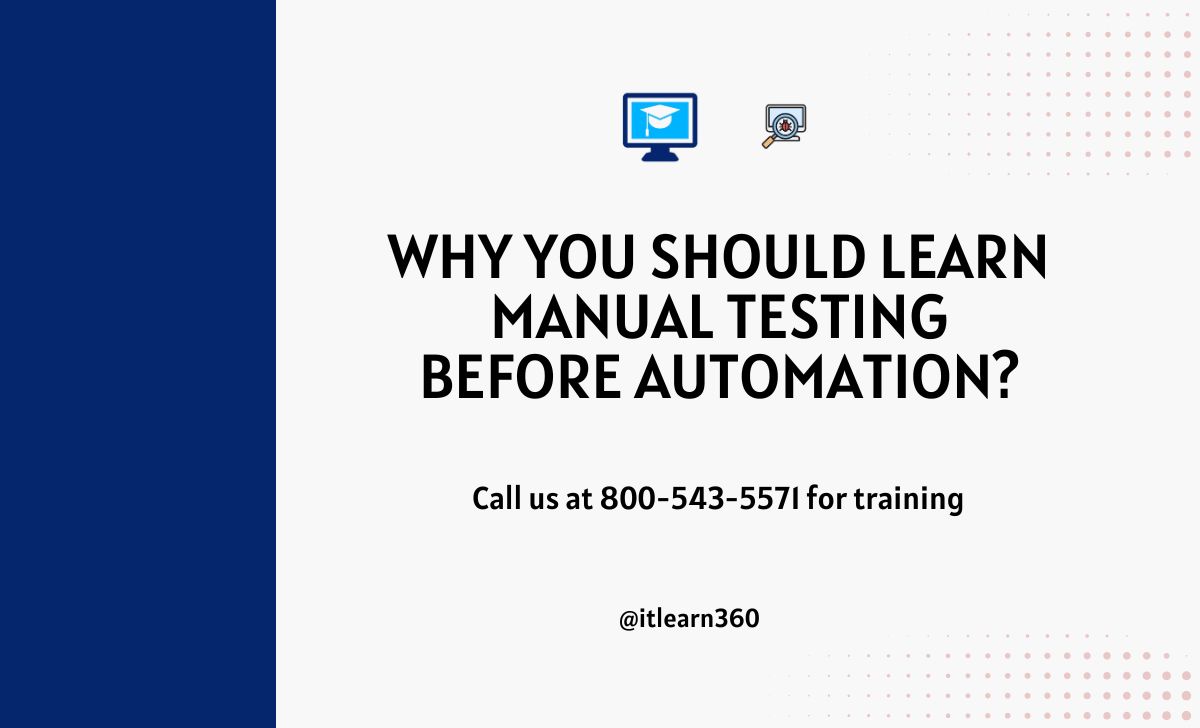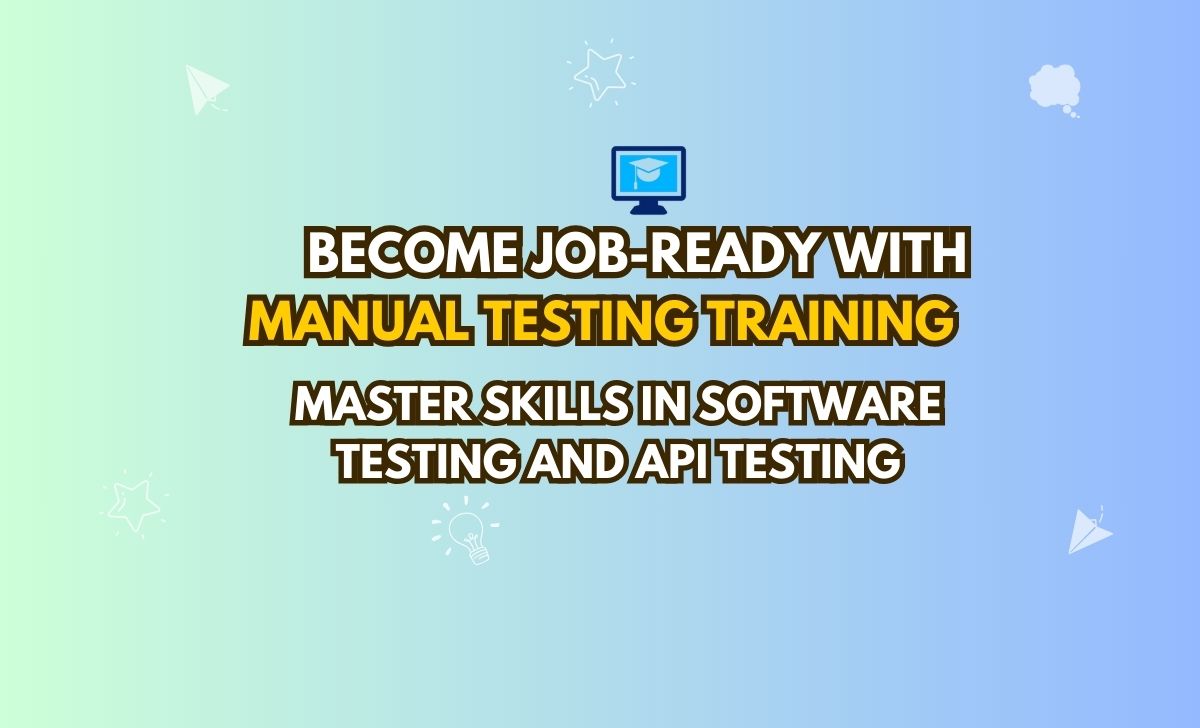The software industry is constantly changing, and software testing is a critical component that ensures the quality, functionality, and security of applications. If you are considering a career in software testing or are looking to advance in this field, it is important to understand the various career paths available. You’ll discover the best software testing career paths, the abilities you need, the tools you need to master, and the chances you can grow along the way.
Introduction to Software Testing Careers

Software testing is not solely concerned with identifying bugs, but also involves enhancing software quality and ensuring that applications meet user expectations and industry standards. The rise of agile approaches, Continuous Delivery practices, and automation has led to the diversification and specialization of software testing positions.
1. Manual Testing Career Path
Overview
Manual testing involves the process of manually running test cases without the use of automation tools. It’s the starting point for many software testers and provides a solid foundation in testing principles and methods.
Roles and Responsibilities
- QA Tester/Manual Tester: Execute test cases, report defects, and collaborate with development teams.
- QA Analyst: Develop test plans and test cases, ensure comprehensive test coverage, and analyze test results.
- Senior QA Analyst: Lead manual testing efforts for complex projects, mentor junior testers, and contribute to test strategy development.
Skills Required
- Strong understanding of SDLC and STLC.
- Proficiency in writing clear and concise test cases.
- Familiarity with defect tracking tools like JIRA or Bugzilla.
- Excellent analytical and problem-solving skills.
Growth Opportunities
- Transition to specialized testing areas such as automation, performance, or security testing.
- Move into test management or QA leadership roles.
- Gain domain expertise in industries like healthcare, finance, or e-commerce.
2. Automation Testing Career Path
Overview
Automation testing employs tools and scripts to automate the execution of test cases, thereby augmenting efficiency and test coverage.
Roles and Responsibilities
- Automation Test Engineer: Develop and maintain automated test scripts, integrate tests with CI/CD pipelines.
- Test Automation Lead: Design and implement automation frameworks, mentor team members.
- Senior Automation Engineer: Optimize automation processes, evaluate new tools and technologies.
Skills Required
- Proficiency in programming languages like Java, Python, or JavaScript.
- Experience with automation tools such as Selenium, Appium, or Cypress.
- Understanding of test automation frameworks (e.g., TestNG, JUnit).
- Knowledge of CI/CD tools like Jenkins or GitLab.
Growth Opportunities
- Transition to roles like Software Development Engineer in Test (SDET).
- Specialize in AI/ML-driven testing automation.
- Move into DevOps engineering with a focus on continuous testing.
3. Performance Testing Career Path
Overview
Performance testing ensures that applications are capable of handling anticipated load and stress conditions without exhibiting any performance degradation.
Roles and Responsibilities
- Performance Tester: Design and execute performance tests, analyze system behavior under load.
- Performance Engineer: Identify performance bottlenecks, recommend optimizations, and collaborate with development teams.
- Senior Performance Engineer: Develop performance testing strategies, lead performance tuning efforts.
Skills Required
- Familiarity with performance testing tools like JMeter, LoadRunner, or Gatling.
- Understanding of performance testing concepts (load, stress, scalability, endurance testing).
- Ability to analyze performance metrics and system logs.
Growth Opportunities
- Specialize in performance engineering and optimization.
- Transition to Site Reliability Engineer (SRE) roles.
- Lead performance testing teams or become a performance testing consultant.
4. Security Testing Career Path
Overview
Security testing is the process of finding vulnerabilities and making sure that applications are safe from threats.
Roles and Responsibilities
- Security Tester/Penetration Tester: Conduct security assessments, perform penetration testing, and report vulnerabilities.
- Security Analyst: Ensure applications comply with security standards, monitor security controls.
- Application Security Engineer: Integrate security practices into the development lifecycle, advocate for secure coding practices.
Skills Required
- Knowledge of common security vulnerabilities (e.g., OWASP Top 10).
- Proficiency with security testing tools like Burp Suite, OWASP ZAP, or Kali Linux.
- Understanding of network security, encryption, and authentication mechanisms.
- Relevant certifications like CEH (Certified Ethical Hacker).
Growth Opportunities
- Advance to roles like Security Architect or Cybersecurity Specialist.
- Specialize in specific areas like cloud security or mobile application security.
- Become a certified security consultant or ethical hacker.
5. Test Management Career Path
Overview
Test management means managing the whole testing process, making sure the quality standards are met, and coordinating the testing activities.
Roles and Responsibilities
- Test Manager: Develop test strategies, manage testing teams, allocate resources.
- QA Manager: Oversee quality assurance processes across multiple projects, ensure compliance with quality standards.
- Director of QA/Testing: Lead organizational QA initiatives, define quality policies, and drive continuous improvement.
Skills Required
- Strong leadership and project management skills.
- Experience with test management tools like TestRail or Zephyr.
- Understanding of quality standards (e.g., ISO, CMMI).
- Excellent communication and stakeholder management skills.
Growth Opportunities
- Move into higher management roles like VP of Quality Assurance.
- Transition to project or program management positions.
- Consult on QA best practices and process improvements.
6. Specialized Testing Career Paths
Overview
Specialized testers focus on niche areas requiring specific expertise.
Types of Specialized Testing
- Mobile Testing: Testing mobile applications for functionality, performance, and usability.
- Game Testing: Testing video games for bugs, performance issues, and user experience.
- Big Data Testing: Validating big data applications, ensuring data integrity and performance.
- IoT Testing: Testing Internet of Things devices and their interactions.
- AI/ML Testing: Testing AI models for accuracy, bias, and reliability.
Skills Required
- Domain-specific knowledge (e.g., mobile platforms, gaming engines).
- Familiarity with specialized tools (e.g., Appium for mobile testing).
- Continuous learning to keep up with emerging technologies.
Growth Opportunities
- Become a subject matter expert (SME) in your specialty.
- Lead specialized testing teams or projects.
- Transition to roles in product development or research within your domain.
7. DevOps and Continuous Testing Career Path
Overview
In devops environments, testers work closely with the development and operations teams to integrate testing into the continuous integration and delivery pipeline.
Roles and Responsibilities
- DevOps Tester: Implement automated tests within CI/CD pipelines, ensure quick feedback loops.
- SDET (Software Development Engineer in Test): Develop testing tools and frameworks, write code to test code.
- DevOps Engineer with Testing Focus: Oversee the integration of testing practices in DevOps workflows.
Skills Required
- Proficiency in programming and scripting languages.
- Experience with CI/CD tools like Jenkins, CircleCI, or Azure DevOps.
- Understanding of infrastructure as code and containerization (Docker, Kubernetes).
- Knowledge of cloud platforms (AWS, Azure, GCP).
Growth Opportunities
- Advance to DevSecOps roles, integrating security into DevOps practices.
- Become a DevOps architect or consultant.
- Lead cross-functional DevOps teams.
8. Test Architect Career Path
Overview
The test architect is responsible for designing and implementing testing strategies, frameworks, and processes at an organizational level.
Roles and Responsibilities
- Test Architect: Define testing methodologies, select tools and technologies, ensure scalability of testing processes.
- Principal Test Engineer: Lead innovation in testing practices, mentor teams, and drive quality initiatives.
Skills Required
- Deep understanding of testing principles and software development.
- Experience in designing test automation frameworks.
- Strategic thinking and ability to align testing processes with business goals.
- Strong leadership and communication skills.
Growth Opportunities
- Transition to enterprise-level roles like Chief Quality Officer (CQO).
- Consult on testing strategy and quality management.
- Engage in thought leadership through publications and speaking engagements.
Conclusion
There are many different ways to work in software testing that suit different interests and abilities. You can find a niche in software testing if you’re into finding bugs by hand, automating tests, making sure things run smoothly, or protecting applications from danger.
Next Steps:
- Identify Your Interests: Reflect on which areas excite you the most.
- Develop Necessary Skills: Invest time in learning the tools and technologies relevant to your chosen path.
- Gain Certifications: Consider obtaining certifications to validate your expertise.
- Build a Portfolio: Work on projects to demonstrate your skills to potential employers.
Additional Resources
- ITlearn360′ Automation Testing Training with Selenium: Enhance your automation testing skills with professional training.
- Certifications to Consider: ISTQB, Certified Selenium Professional, Certified Performance Tester.
- Communities and Forums: Join software testing communities on platforms like LinkedIn or Reddit to network and learn from peers.
By understanding the various career paths and their responsibilities, you will be able to make informed decisions and chart a successful path in the dynamic world of software testing.
Call to Action: Ready to embark on your software testing career? Learn more about our training programs at ITlearn360 to get started.
https://www.itlearn360.com/courses/software-testing-academy







